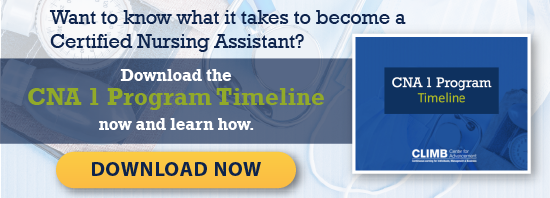 The income associated with medical careers is attractive, but not everyone has the personal time or finances to put towards four years of undergraduate school, then medical school, and beyond. You may be wondering, "Do I need a four-year degree to work in healthcare?" Technically, the answer is no, and this article will outline the opportunities available without a four-year degree as well as why planning for a four-year degree as well will increase your opportunities and income.
The income associated with medical careers is attractive, but not everyone has the personal time or finances to put towards four years of undergraduate school, then medical school, and beyond. You may be wondering, "Do I need a four-year degree to work in healthcare?" Technically, the answer is no, and this article will outline the opportunities available without a four-year degree as well as why planning for a four-year degree as well will increase your opportunities and income.
Why Don't These Medical Professions Require an Advanced Degree?
Healthcare professions require training, sometimes very specific training, but that doesn't necessarily require years of schooling. Some professions, usually referred to as allied health professions, require a high school diploma or GED and on-the-job training, while potentially offering benefits like education assistance. These are great entry level positions that can act as stepping stones to further your education or position, but are also rewarding in and of themselves.
Other jobs, ones that offer better stability and a higher wage, do require an Associate’s or Bachelor’s degree with a particular focus. In many cases, no matter what level of education is required, licensing and certification is also required.
What Kinds of Jobs Can I Find Without a Four-Year Degree, and What Do They Require?
-
Medical Records and Health Information Technician - Sometimes referred to as a medical billing specialist or a medical coder, this position doesn't require more than a high school diploma, but certification is required and an associate's degree may be preferred. However, in some instances training toward this certification can be done through non-degree courses over 6-9 months. Positions tend to be part time, and pay tends to be around $17/hour ($34,000 annually). Responsibilities include entering sensitive medical information on paper and electronically, including specialized codes and categorizations that indicate billing, reimbursement, and insurance status. Employment could be anywhere from a private practice or nursing home, to large hospitals.
-
Diagnostic Medical Sonographers and Nuclear Medicine Technologists - The former are known better as ultrasound technicians while the latter are radiology technicians, but in both cases, the positions require a high school diploma and an associates degree as well as professional certification. Positions may be part time or full time, and the pay is about $30/hour ($60,000 annually). Responsibilities include understanding technical imaging machinery, anatomy, and in the case of radiology technicians, limited radiopharmacology. Employment tends to be in hospitals, although sometimes there are specialty offices.
-
Sterile Processing Technician - Not to be confused with a surgical technologist, this position doesn't require more than a high school diploma with on the job training, although postsecondary training programs are often preferred. Positions tend to be part time but some may be full time, and the pay is about $20/hour ($40 thousand annually). Responsibilities include sterilizing surgical equipment, setting up crash carts, delivering sterilized supplies, retrieving contaminated supplies, and maintaining sterilization equipment. Employment tends to be in hospitals, urgent care facilities, and surgical centers.
-
Licensed Practical or Vocational Nurse - This position requires completing a state-approved educational program, on-the-job training under a licensed registered nurse, and state licensing. This position may be part time although it's usually full time, and the pay is about $20/hour ($41,000 annually). Responsibilities include basic medical care. Employment tends to be at extended care facilities, physicians offices, hospitals, and private homes.
-
Pharmacy Technician - This position requires postsecondary education and training as well as on-the-job training, this career may be either part time or full time. The pay is about $14/hour ($29,000 annually). Responsibilities include dispensing certain kinds of prescriptions, processing limited amounts of personal information, and submitting insurance claims. Employment tends to be at pharmacies in drug stores, grocery stores, hospitals, and some doctor's offices.
Bear in mind, there are many more options and this is a growing industry, but you should be realistic about where job opportunities will be located and how much you'll be paid. Getting the entry level job in healthcare that you want may require changing where you live.
What Kinds of Jobs Can I Get With a Four-Year Degree, and What Degree Do They Require?
-
Biomedical Engineer - Requiring a specialized bachelor's or graduate degree from an accredited program, this career tends to be full time work ($87,000 annually) at corporate research facilities, hospitals, and universities.
-
Compliance Officer - Requiring a bachelor's degree in hospital administration with training in health care legislation, this career is full time ($70,000 annually) at hospitals, urgent care facilities, and other medical locations.
-
Physician's Assistant - Requiring a master’s degree and training from an accredited program as well as licensing, this career is full time ($90,000 annually) at private practices, hospitals, and other medical facilities.
Furthered education opens up many, many more possibilities for employment, of course, and further increases your chances of being hired where you'd like to live. However, the willingness to move also increases the odds of both being hired and paid your preferred wage.
As you can see, you have a lot of options. Whether you're just starting to consider your options for after you graduate high school or you want to change your career trajectory, there can be a career in healthcare for you. Just remember that no career choice or job specifically will be the easy road to wealth and happiness. If you're not sure where to get started, visit the PCC Institute for Health Professionals for more information.




